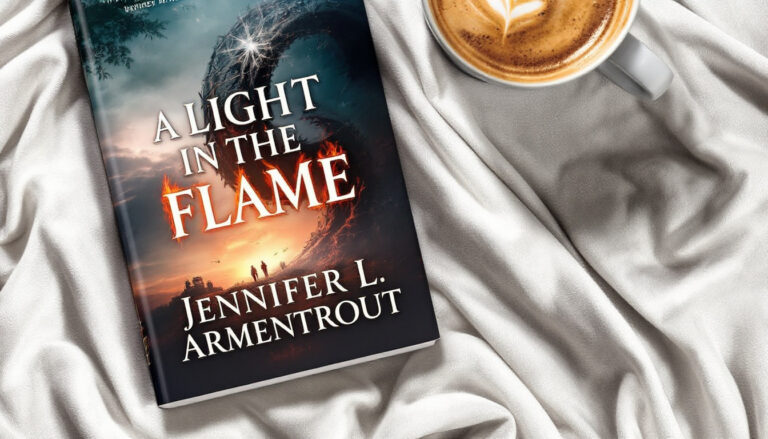Things We Left Behind by Lucy Score – A Charming Conclusion Review
The final installment in Lucy Score’s Knockemout series, Things We Left Behind, delivers an emotional and satisfying conclusion to a much-loved trilogy. Centered on Lucian Rollins and Sloane Walton, the book explores an enemies-to-lovers dynamic with depth and heart, combining sharp banter, unresolved history, and moments of vulnerability. Fans of small-town romance will appreciate how past tensions evolve into something tender and meaningful, all while revisiting beloved characters from earlier books. As the series wraps up, it leaves readers with an unforgettable blend of passion, suspense, and second chances.
Overview of ‘Things We Left Behind’
Things We Left Behind by Lucy Score serves as the gripping conclusion to the Knockemout series. Lucian Rollins and Sloane Walton take center stage in this enemies-to-lovers romance, drawing readers into a passionate yet tender story filled with humor, vulnerability, and the weight of unresolved history. The narrative, illuminated with flashbacks, not only highlights their tumultuous past but also their journey toward healing and love. Situated in the charming town of Knockemout, the book brilliantly interweaves themes of trust, redemption, and the bonds of family.
Main Characters
Sloane Walton is not your average librarian—she’s smart, witty, and unapologetically bold. Her fiercely independent nature blends perfectly with her charming small-town roots. But she’s more than just a feisty heroine; her backstory reveals deep emotional layers that make her relatable and endearing. She’s a woman who values loyalty and stands her ground, even when faced with her ultimate rival—Lucian Rollins.
Lucian, on the other hand, is the textbook definition of a brooding CEO. Rich, powerful, and meticulous, he thrives on control, but his polished exterior hides a troubled past. As a self-made mogul, he’s spent years erasing the scars left by his abusive father, building a fortress of wealth and power to protect himself and those he loves. However, his stoic demeanor starts to unravel when he’s around Sloane, revealing glimpses of vulnerability.
Their chemistry starts with sparks of animosity. Lucian and Sloane share a history that dates back to their teens, a history marked by love, betrayal, and misunderstandings. The enemies-to-lovers dynamic adds tension and humor, but it also gives way to some deeply emotional moments. Their banter is sharp, their attraction palpable, and their journey to reconciliation one that keeps readers on the edge of their seats.
Learn more about the character dynamics in Things We Left Behind by checking out this detailed review on Goodreads.
Setting and Themes
The small-town charm of Knockemout serves as both a backdrop and a catalyst for the story’s emotional undertones. Readers familiar with the series will appreciate how Lucy Score captures the cozy yet interconnected nature of the town, where everyone knows everyone’s secrets (or at least thinks they do). Surrounded by familiar faces and quirky neighbors, Knockemout feels alive, adding layers of depth to Lucian and Sloane’s evolving relationship.
Several key themes drive the narrative:
- Family: From navigating complicated pasts to finding moments of healing, the importance of family—both biological and chosen—runs through the story.
- Trust and Forgiveness: The characters face the challenge of reconciling their pasts, learning to trust each other again, and finding forgiveness for old wounds.
- Second Chances: The book makes a compelling case for love’s ability to endure and revive, even after years of pain and distance.
- Redemption and Love: Lucian’s journey to shed the burden of his father’s legacy ties seamlessly with his rediscovery of love and vulnerability through Sloane.
The themes of love, redemption, and found family take center stage in the progression of Lucian and Sloane’s relationship, providing not only resolution for the characters but a satisfying conclusion to the series.
For more about how Things We Left Behind wraps up these themes, check out this insightful review by Girl in the Pages.
Strengths of the Book
Lucy Score’s Things We Left Behind isn’t just a thrilling romance; it’s a celebration of character development, emotional intricacy, and small-town dynamics. From the steamy, relatable love story to the enriching subplots, it masterfully balances heart and humor, giving readers countless reasons to fall in love with Knockemout once again.
The Romance Journey
At the center of Things We Left Behind is the gripping romance between Sloane Walton and Lucian Rollins. Their relationship is not your typical love story. It’s a tale filled with old wounds, buried feelings, and second chances. The enemies-to-lovers trope keeps you hooked as Sloane and Lucian navigate the complexities of rekindled passion.
Through flashbacks, readers get a deep dive into their teenage connection, revealing the moments that built and simultaneously fractured their bond. These glimpses into their history don’t feel like interruptions; they’re puzzle pieces snapping into place, showing why their chemistry is so explosive in the present.
The emotional weight here is palpable. The tension simmering between the two, from sharp verbal jabs to stolen, tender moments, grabs your attention and doesn’t let go. It’s a raw, unfiltered look at love’s layers—passion, vulnerability, and healing collide in ways that feel as genuine as they are engaging.
Want to read more about the charged moments in the novel? Check out Goodreads’ review of Things We Left Behind for insights into what makes Lucian and Sloane’s story unforgettable.
Supporting Characters and Subplots
The Knockemout series wouldn’t be complete without its colorful supporting cast. In Things We Left Behind, these characters aren’t mere sidekicks—they add richness to the narrative, reflecting the tight-knit community that defines the series.
Familiar faces like Knox and Naomi bring continuity and nostalgia for series fans, while others, like Stef, offer humor and perspective. Each character, from the quirky to the heartfelt, contributes meaningfully to Sloane and Lucian’s story. Their presence grounds the book in the shared history of Knockemout, making the story feel lived-in and full of layers.
Subplots strengthen the book without overshadowing the main storyline. For example, the ongoing tension in Lucian’s business empire and its connection to his complicated family history adds stakes and urgency. Another key subplot dives into friendships and alliances in Knockemout, particularly how the townsfolk rally behind Sloane and Lucian during crucial moments. These threads enrich the world without overcomplicating it, making the story multidimensional and immersive.
Curious about what makes these supporting characters so memorable? Learn more through this fan-favorite breakdown of Things We Never Got Over on the Knockemout Fandom page. It offers insights into the interconnected web of relationships across the series.
Lucy Score proves, once again, that her ability to craft a layered narrative shines brightest when all these elements come together seamlessly. It’s not just Sloane and Lucian’s romance that captivates you—it’s the world they share and the people who populate it. This series finale offers a balance of emotional depth and vibrant character interactions, giving fans a story they’ll carry with them long after turning the final page.
Criticisms and Controversies
While Things We Left Behind has been praised for its emotional depth and compelling love story, it hasn’t escaped criticism. Some readers felt the book fell short in character consistency and leaned heavily on familiar romance tropes. Below, we explore the most common points of contention.
Character Development Challenges
One of the most debated aspects of Things We Left Behind is Lucian Rollins’ character arc. Lucian, portrayed as a meticulous and powerful CEO, carries a complex and deeply troubled past. However, for many readers, his actions and behavior throughout the story didn’t always align with his established persona. At times, his decisions were viewed as inconsistent or even contradictory for someone of his age and supposed maturity.
For example, while Lucian’s backstory underscores his struggles to overcome his father’s abuse and build an empire, his emotional responses often felt overly juvenile, especially in conflict with Sloane. Actions that readers might expect from a younger, less experienced character sometimes appeared in Lucian’s portrayal, raising questions about the coherence of his development as an adult. As one commenter pointed out in a recent review, “Lucian’s critical-thinking skills seemed to regress any time he was around Sloane, making his growth less convincing.”
Furthermore, readers anticipated more significant evolution in Lucian’s personality given the years he spent rebuilding his life. Instead, his reliance on external displays of success left some questioning the depth of his internal growth. These criticisms highlight how hard it can be to balance portraying vulnerability while maintaining character integrity, particularly with male leads in romance novels.
Overuse of Tropes
Another point of contention is the book’s heavy use of classic romance tropes. While tropes like enemies-to-lovers and the third-act breakup have been longstanding staples in the genre, their implementation in Things We Left Behind felt overly formulaic for some readers. Critics argued that these elements, while entertaining, lacked originality, making portions of the story feel predictable.
The enemies-to-lovers arc between Lucian and Sloane was particularly polarizing. Though their vibrant banter and unresolved tension drew many readers in, others felt the animosity and eventual romantic payoff relied too heavily on familiar patterns without adding much new to the trope. One review from Girl in the Pages noted, “The tension is simmering, yes, but it’s a tension we’ve read many, many times before.”
The third-act breakup—a device wherein a couple faces a significant conflict that temporarily separates them—was another sticking point. For some, its execution was compelling and even heart-wrenching, providing crucial growth for the characters. For others, it felt contrived, especially since the reasons for the breakup seemed unnecessarily dramatic given the maturity and history of the characters.
Readers who appreciated the tropes viewed them as comforting and nostalgic. After all, romance fans often look for familiar beats executed well. However, for those seeking something fresher, these conventional narrative devices detracted from the emotional impact of the story, dampening their overall enjoyment. The mixed opinions show that while tropes can be a strength, their overuse can inadvertently limit a book’s reach for certain audiences.
Both issues—Lucian’s character inconsistencies and trope reliance—underscore the challenges of crafting a story that resonates across a wide readership. These criticisms don’t overshadow the book’s strengths but offer areas where the narrative could have been more polished to secure broader appeal.
Final Thoughts on the Series’ Conclusion
As the final installment in Lucy Score’s Knockemout series, Things We Left Behind does more than wrap up a love story—it ties together threads woven over three books, providing closure for both its characters and devoted readers. The book’s emotional depth, high-stakes moments, and poignant resolutions ensure fans leave Knockemout feeling fulfilled, albeit with a tinge of bittersweetness as they bid farewell to this fictional world.
Satisfying Emotional Closure for Characters
One of the most rewarding aspects of Things We Left Behind is the satisfying end it delivers for Lucian Rollins and Sloane Walton. Their journey has been fraught with tension, misunderstandings, and years of unresolved hurt. From their rediscovery of trust to confronting painful memories, their story is a testament to the power of healing and forgiveness. Unlike many rushed conclusions, this book takes its time to show the evolution of their relationship, making the payoff feel genuine and thoroughly earned.
For instance, the backstory of Lucian’s emotionally troubled life and Sloane’s steadfast loyalty is masterfully tied into their present conflicts. The final chapters reveal not only how far they’ve come as individuals but also as partners willing to embrace vulnerability. Readers who’ve followed this couple will appreciate how their reconciliation feels like more than just closure—it’s a well-crafted ending that honors the complexities of their journey.
Want to read more about what makes this conclusion satisfying? Check out this review for additional insights into the emotional depth of the book.
How It Concludes the Knockemout Series
Beyond the personal arc of Lucian and Sloane, the book effectively ties up the overarching storyline of the Knockemout series. Long-standing subplots, like the unresolved feud with Anthony Hugo, come to a climactic resolution. The danger surrounding the crime boss adds urgency and suspense, bringing the series’ less romantic elements to a boiling point. This dual-layered storyline—romantic and suspenseful—ensures that the book appeals to a range of readers.
At the heart of the series lies the interconnected community of Knockemout. This conclusion embraces the town’s charm one last time, reuniting familiar faces like Knox Morgan, Naomi, Nash, and Lina to weave their stories into the final fabric of the narrative. Fans will feel a sense of nostalgia as characters they’ve grown attached to find their own moments of peace and resolution.
Curious about the town’s role throughout the series? Dive into the details with this comprehensive review.
Addressing Themes of Growth and Redemption
Themes of redemption and personal growth are crucial to the series’ conclusion. Lucian’s arc, in particular, reflects the challenge of overcoming generational trauma and learning to let go of control. His transformation—from a man trapped by the toxicity of his father’s legacy to someone who chooses love and connection over isolation—resonates deeply. Sloane’s journey, too, is equally compelling; she refuses to compromise her sense of self, even while opening up her heart to Lucian again.
The broader theme of “found family” is another cornerstone of this finale. Lucy Score skillfully shows how the bonds forged between friends, lovers, and the Knockemout community fill the gaps left by broken biological families. These moments remind readers that while love stories may anchor the series, it’s the theme of belonging that leaves a lasting impression.
Want a deeper analysis of these themes? Read this thoughtful piece exploring the book’s emotional layers.
Why Fans Will Miss the Series
Saying goodbye to a series as beloved as Knockemout is never easy. Over three books, Lucy Score has built not just a series but a world that readers feel invested in. From the witty banter to the heart-pounding drama, these stories have balanced lighthearted fun with raw emotional moments. Fans will undoubtedly miss the small-town feel of Knockemout, where every resident has a story worth telling and love always finds a way.
It’s not just Lucian and Sloane’s romance that fans will hold dear—it’s the friendships, the humor, and the bittersweet reminder that even in fiction, good things must come to an end. The series leaves a legacy of characters and lessons that will linger long after readers have turned the final page.
Conclusion
Things We Left Behind is a fitting finale to Lucy Score’s Knockemout series, delivering heartfelt romance, engaging character arcs, and the signature small-town charm fans have come to love. With Lucian and Sloane’s story, the book skillfully blends emotional depth with moments of humor and passion while addressing themes of redemption, trust, and second chances.
Though some readers may take issue with familiar romance tropes or pacing, the book’s strengths lie in its compelling chemistry, layered backstory, and sense of community. It’s an excellent choice for fans of contemporary romance who enjoy enemies-to-lovers dynamics, deeply emotional journeys, and interconnected storylines.
If you’re ready to immerse yourself in a world of love, forgiveness, and found family, Things We Left Behind promises a satisfying and memorable conclusion. Share your thoughts on the series and let us know what you loved most about this small-town saga!







